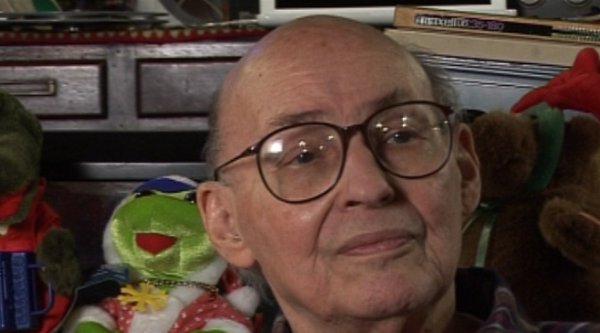NEXT STORY

Hiring technicians to run the AI lab properly
RELATED STORIES

NEXT STORY

Hiring technicians to run the AI lab properly
RELATED STORIES


|
Views | Duration | |
|---|---|---|---|
| 41. The frustration of teaching calculus at MIT | 1878 | 01:54 | |
| 42. Publishing Steps Toward Artificial Intelligence | 1046 | 01:39 | |
| 43. Switching from teaching math to artificial intelligence | 1097 | 00:32 | |
| 44. The beauty of the Lisp language | 1 | 5258 | 02:05 |
| 45. The beginning of the artificial intelligence community | 1 | 1150 | 01:16 |
| 46. The fathers of Artificial Intelligence | 2 | 1257 | 02:08 |
| 47. My covert dating tactics | 1 | 1525 | 01:46 |
| 48. How things got done at the AI lab | 1154 | 00:57 | |
| 49. Setting up the AI lab with John McCarthy | 1209 | 02:00 | |
| 50. The great benefit of having a co-director | 946 | 02:21 |


Then a few years later, I think 1963 – four years later – McCarthy went to, moved to Stanford but I had met Seymour Papert; in a sort of remarkable way we were both at some meeting in England and presented the same paper on some kind of machine learning idea, but it was exactly the same fragment of mathematics that we had both discovered separately and it turned out that for most things, if you asked a question we’d both give the same kind of possible answer. So we became co-directors and then a few years later Papert started his own laboratory to develop educational systems for young children and one of my former students, Patrick Winston who was a very original creative theorist in artificial intelligence was there, and I asked him to be co-director.
So, through this whole period, if there was an important decision to make and I couldn’t make it, I would just go home and Papert or Winston or... whoever, the co-director, would make the decision and I’ve never understood since then why anybody would want to be the director of a company. And, in fact, generally, I find those people become rather... they enjoy the power and the making of unpleasant decisions and generally I don’t get along with them very well. But apparently there’s... there's two ways of running an organization and I’ve seen very few cases where there’s a pair of directors, but I think the Google twins might be an example and... so that sort of thing does happen here and there.
Marvin Minsky (1927-2016) was one of the pioneers of the field of Artificial Intelligence, founding the MIT AI lab in 1970. He also made many contributions to the fields of mathematics, cognitive psychology, robotics, optics and computational linguistics. Since the 1950s, he had been attempting to define and explain human cognition, the ideas of which can be found in his two books, The Emotion Machine and The Society of Mind. His many inventions include the first confocal scanning microscope, the first neural network simulator (SNARC) and the first LOGO 'turtle'.
Title: The great benefit of having a co-director
Listeners: Christopher Sykes
Christopher Sykes is a London-based television producer and director who has made a number of documentary films for BBC TV, Channel 4 and PBS.
Tags: Stanford University, John McCarthy, Seymour Papert, Patrick Winston, Larry Page, Sergey Brin
Duration: 2 minutes, 22 seconds
Date story recorded: 29-31 Jan 2011
Date story went live: 09 May 2011